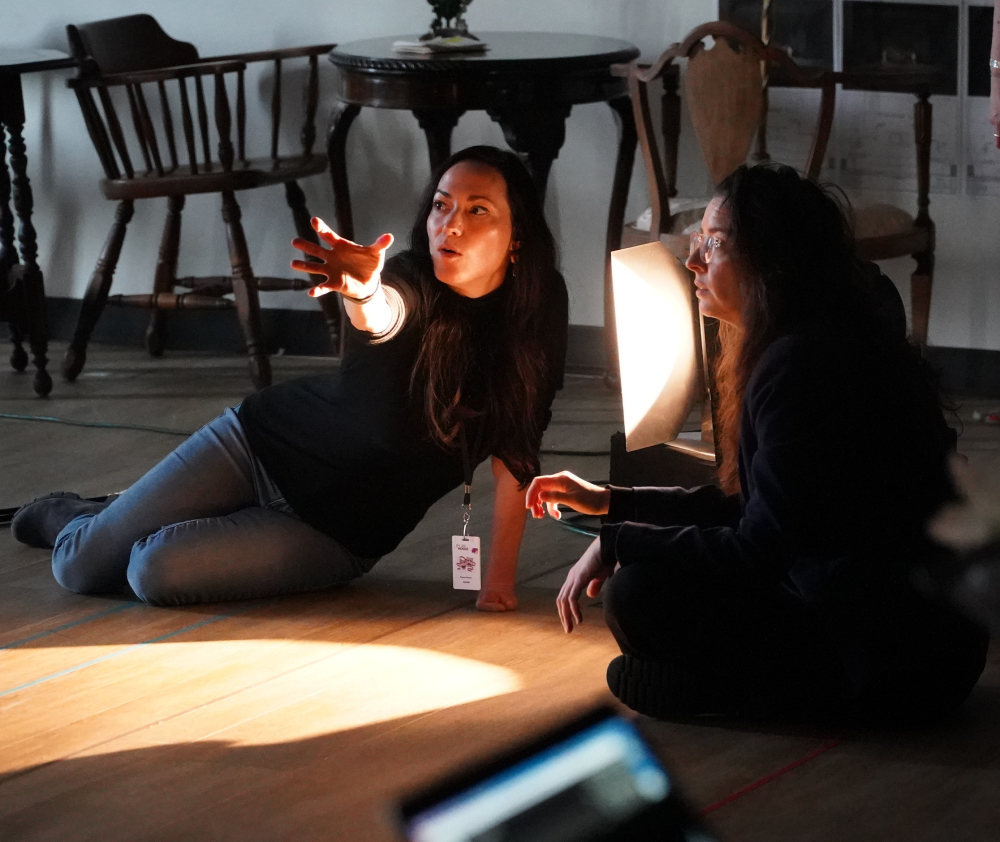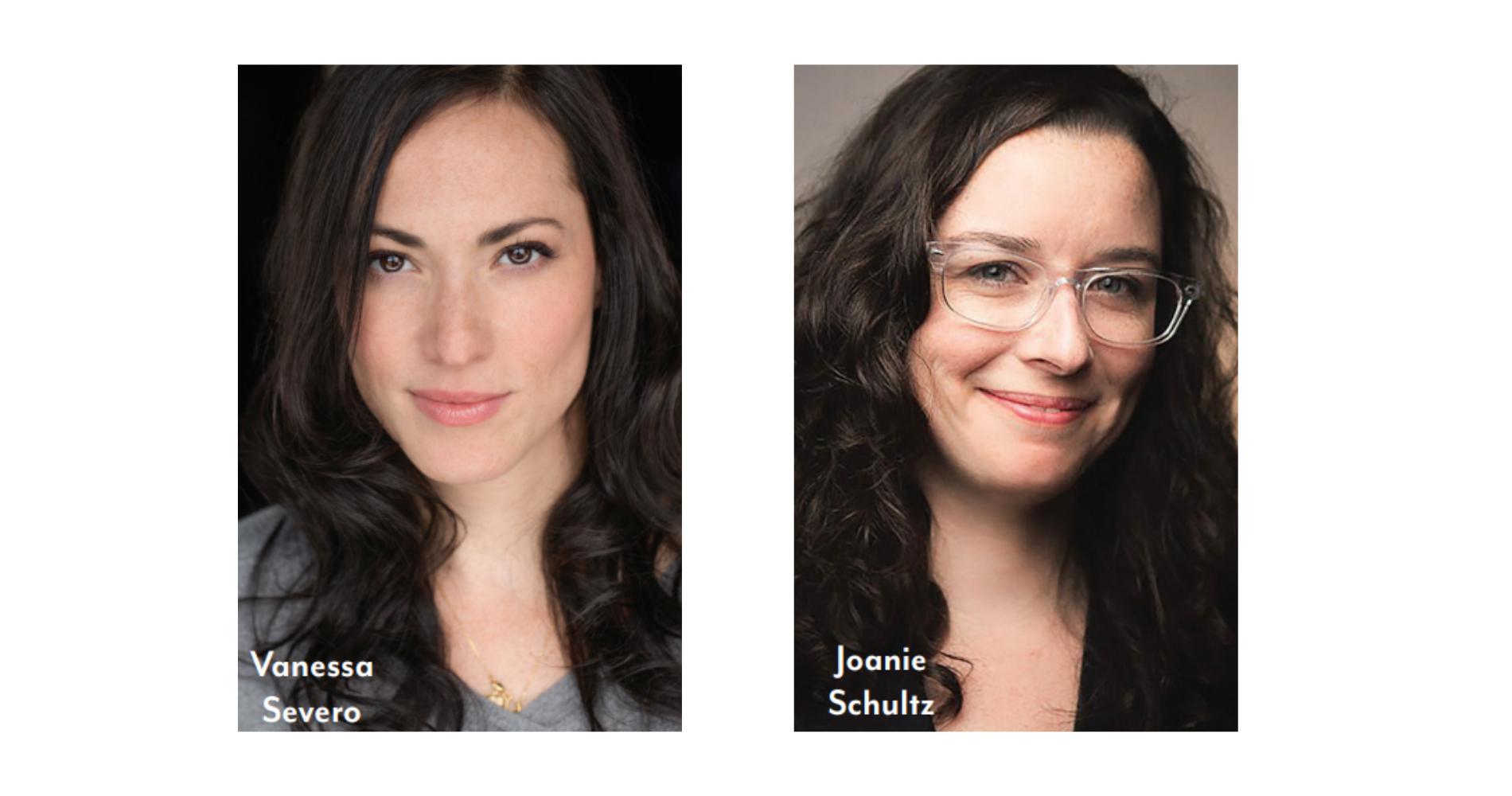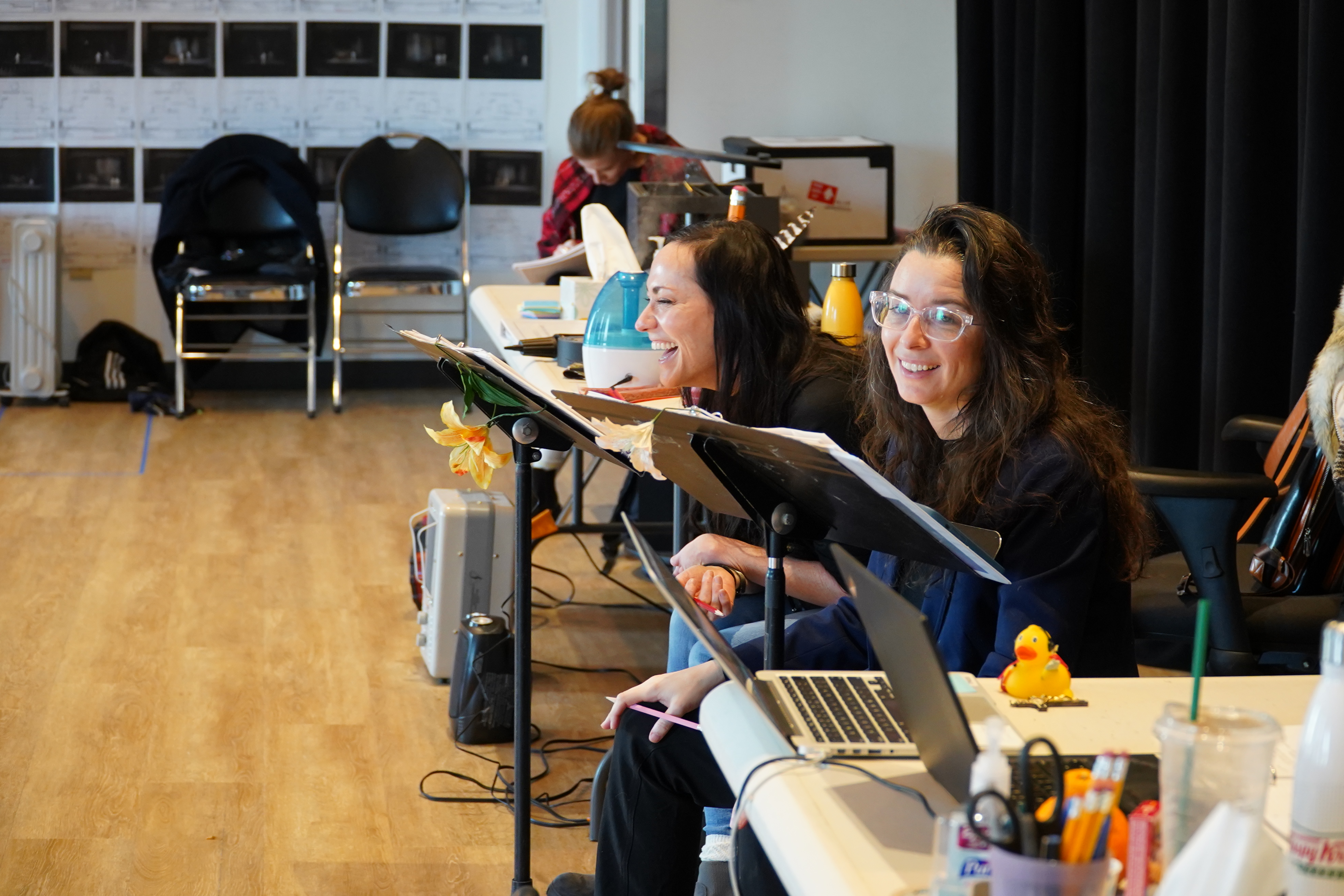Bringing the Undead to Life

The legacy of Count Dracula and the figure of the vampire are deeply ingrained in popular culture. The allure and the terror of the Count have not only established many quintessential vampire tropes but also fueled a fascination with the undead that has endured since Bram Stoker first wrote his novel in 1897. The vampires created in literature, film and on stage often serve as mirrors reflecting the fears, anxieties, and social concerns of their time. As such, the myth of the vampire has evolved over the ensuing century, spanning from reinventions of Count Dracula himself to the glistening vampires of Twilight, from Nosferatu to What We Do in the Shadows. This enduring legacy will continue to captivate audiences in Moe and Jack's Place — The Rouse Theatre with a brand-new adaptation of Dracula from Vanessa Severo and Joanie Schultz.
Playhouse audiences will remember Severo from her play Frida...A Self Portrait and from her beautiful, stylized movement in last season's world premiere of Shane. Schultz is, of course, the Playhouse's Associate Artistic Director. You'll remember her direction of last season's world premiere of the workplace comedy Origin Story. Suffice it to say, both are more than familiar with how to build a new play. When generating the first draft of the adaptation, Severo and Schultz offered some insights into the process and their intentions. "In this adaptation, we shift the lens, and view the story through the female gaze. Evil does exist, and can be fought with axes, spears, crucifixes, and science...or simply by women's ingenuity."

(R to L) Mia Hutchinson-Shaw, Donovan Woods, Torsten Johnson, Mi Kang, and Rin Allen in rehearsal for Dracula
Obviously, there are some elements of Stoker's lore that audiences will be delighted to experience: Severo's movement work, along with some surprise special effects, will conjure the horrific and the supernatural; the actors are preternaturally talented and beautiful, expertly portraying these well-known characters; and there are heaps and mounds of stakes and garlic. Some of the elements of this production, however, come straight from the imagination of Severo, Schultz, and their team of designers.
The writer-director duo first met with the designers (costume, set, lighting, sound) over Zoom in late July to brainstorm what this specific version of Dracula would look and sound like. In these preliminary meetings, the entire team went scene by scene through the script to establish what the vibe of the scene was and what props and scenery were necessary for the scene to take place. Set designer Yu Shibagaki used the meeting to share hundreds of research photos to inspire the look and feel of the production. From this research, the entire team was able to form concrete ideas about patterns in color, use of line and angles, the aural world of the play, and how the scenes would flow from one into the next.
By the end of September, Schultz, Severo, and their fledgling script went into workshop, which was supported by the funds of the Jerome Fey Endowment. In this workshop, the writer-directors, dramaturg, nine actors, and a stage manager spent four days in a rehearsal room with the script. On the first day of the workshop, the actors read the script aloud. The dramaturg, who functions as another creative collaborator with expertise in playmaking, elicited specific feedback from the actors about how the script was working. Schultz and Severo then took that feedback to produce a brand-new draft for the next day. This process continued over each of the four days and culminated in a reading of the latest draft for invited Playhouse staff members.
The script has continued to be developed throughout the rehearsal process, which began at the beginning of January. In the rehearsal process, both the actors and the production dramaturg in the room ask pertinent questions about the characters' intent and the shape of the play. These questions are both inherent to the process of rehearsal and to the new play process; they are necessary to make the storytelling as clear as possible for our audiences. Severo and Schultz took the time to answer some of our questions about making this new version of a classic.

Why Dracula? What about this story needs to be told here and now?
Vanessa: I have always found something very alluring about immortality, but also something downright terrifying about it. Dracula walks among us with a secret he could willingly share. That choice is dangerous, but also enticing. The story of Dracula tends to get passed off a story about bloodlust, when it is in fact a story about vice, and the choices we make, and the outcomes of those choices.
Joanie: Yes! Vice, secrets, lies, and addiction. All of these have parallels that are made more fantastical in the world of Dracula but remain so relevant to today. Every character in our version of Dracula has a dark past of themselves. I love that no one is innocent because that's real.
What were some of the challenges in adapting this novel for the stage?
Joanie: Women are basically objects in the novel, or so one-dimensional they might as well be. I actually only read it for the first time a year and a half ago and found myself constantly frustrated with that.
Vanessa: Older structures of Dracula pigeonhole the female characters as weak, and only known for their beauty and innocence. Gender inequality was a huge challenge. We decided to take away gender roles. We looked at the bones and scaffolding of Dracula and turned it into a smart game of chess, where the Queen is the most powerful player.
Joanie: Also, the novel is completely written in letters, journals and newspaper clippings. None of that is dramatic. I think that's one of the reasons you see every adaptation of Dracula is very different — we are filling in the spaces that the novel doesn't.
You spent a week in workshop, working on the script with actors, to hear the play aloud. What was the process like and how did the script change over the week?
Vanessa: A play cannot live on the page. It has to breathe and be spoken out loud. When the words are spoken you are really working with a story that has lungs. The workshop was crucial for the process. The process was a gift. The gift of having a group of people in a room there to unpack a story. The script went from having a skeletal structure to having veins.
Since you both are directing it, can you tell us about the production itself? What's the vibe?
Joanie: The vibe...dark, tense, secretive, and surprisingly funny in places.
Vanessa: It will feel like a place you maybe shouldn't be, but you also don't want to walk away from. Dangerous and alluring, and somewhat familiar.

Vanessa Severo and Joanie Schultz in rehearsal for Dracula
How are you working with the technical team to create the supernatural elements of the story?
Vanessa: Supernatural is such a fun word. It should live in nature but it's not. It's heightened, it's risky, it's not of this earth. Our design team is working brilliantly together to make the elements just that.
Joanie: Our team has been crafting a world that is mysterious and magical. Along with the designers that one has on every play (set, lights, costumes, sound), we also have an illusion designer.
Vanessa: We are crafting a design that will make you unsure of what you just saw and leave you asking how it was done on the drive home.
What lessons or insights have you gained in adapting Dracula that you'll take with you to your next project?
Vanessa: When editing the script...start with a scalpel and end with a hatchet.
Joanie: Not to be afraid to make it your own. We started with Bram Stoker, but we are making a play for this audience now, something that spoke to us as artists, and like every Dracula you've ever seen on film, TV or theatre, this takes some twists in the spirit of the source material that will speak to today.
What do you want audiences to know before seeing Dracula?
Vanessa: Turn off your cellphones.
Joanie: Ha! Yes, please do, the gift of theatre is immersing yourself in another world and trying to step away from the constant information we are always getting. We get to experience this live with other people and live storytellers in front of us. What a gift that we can still do that.